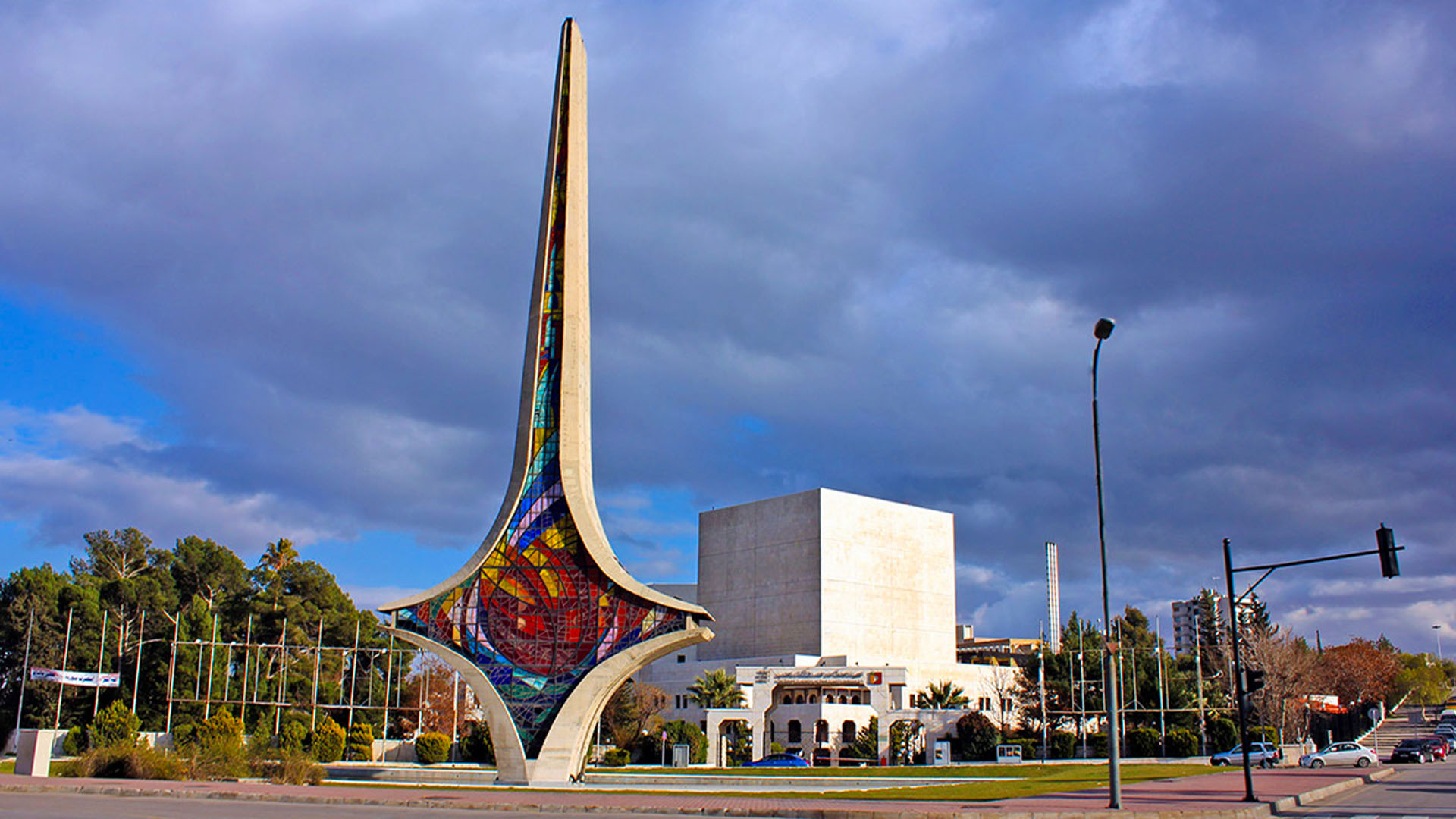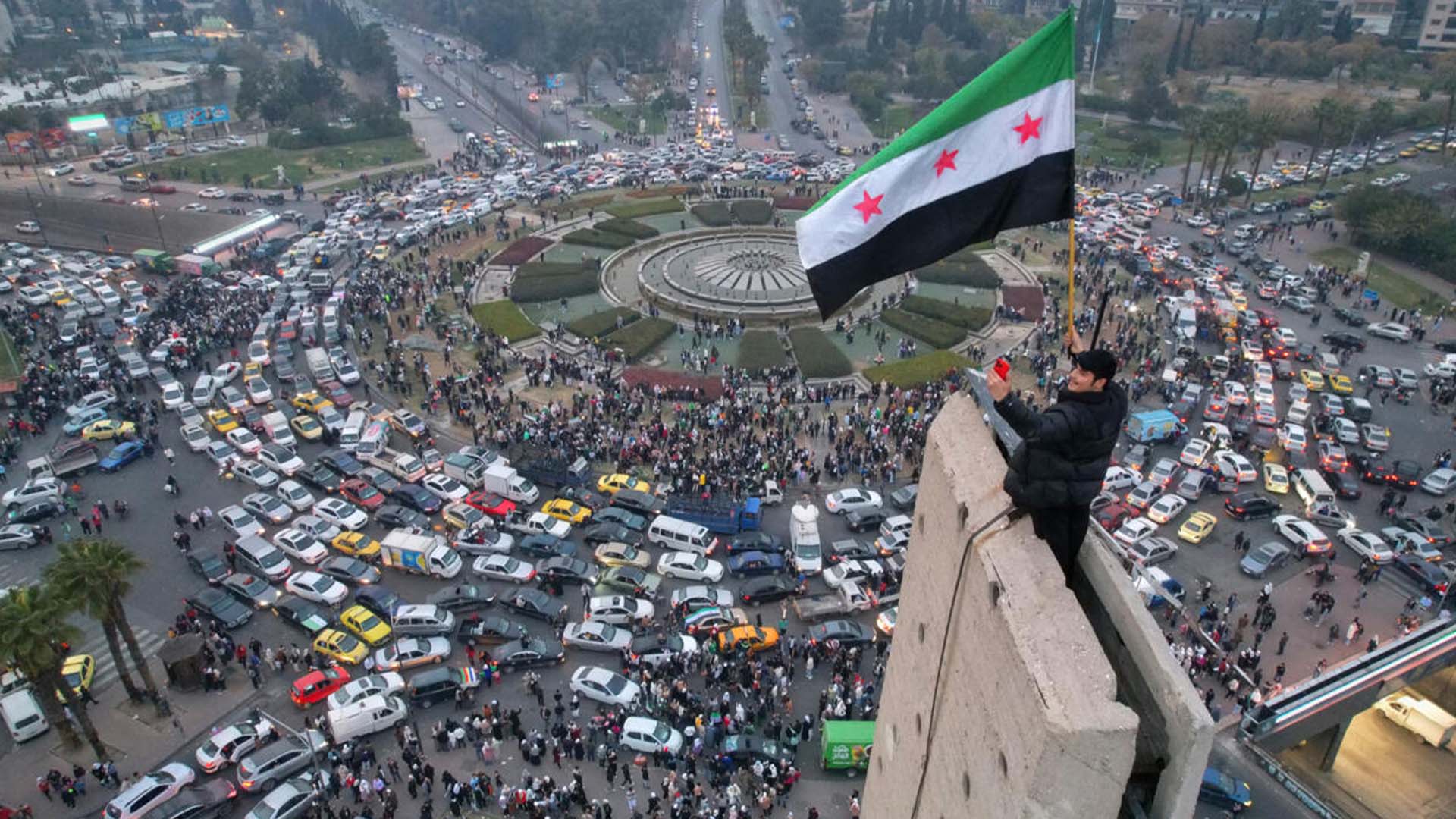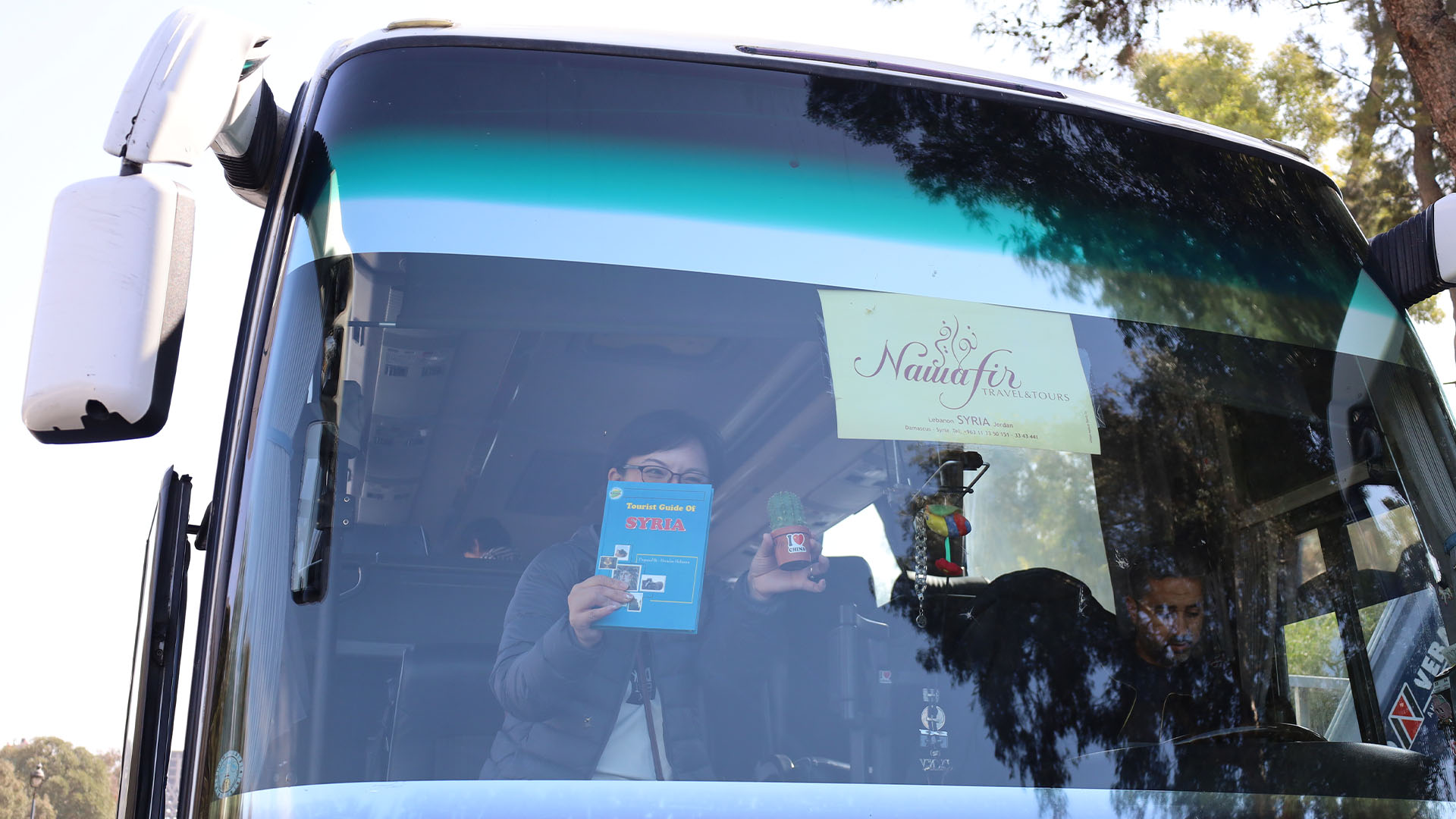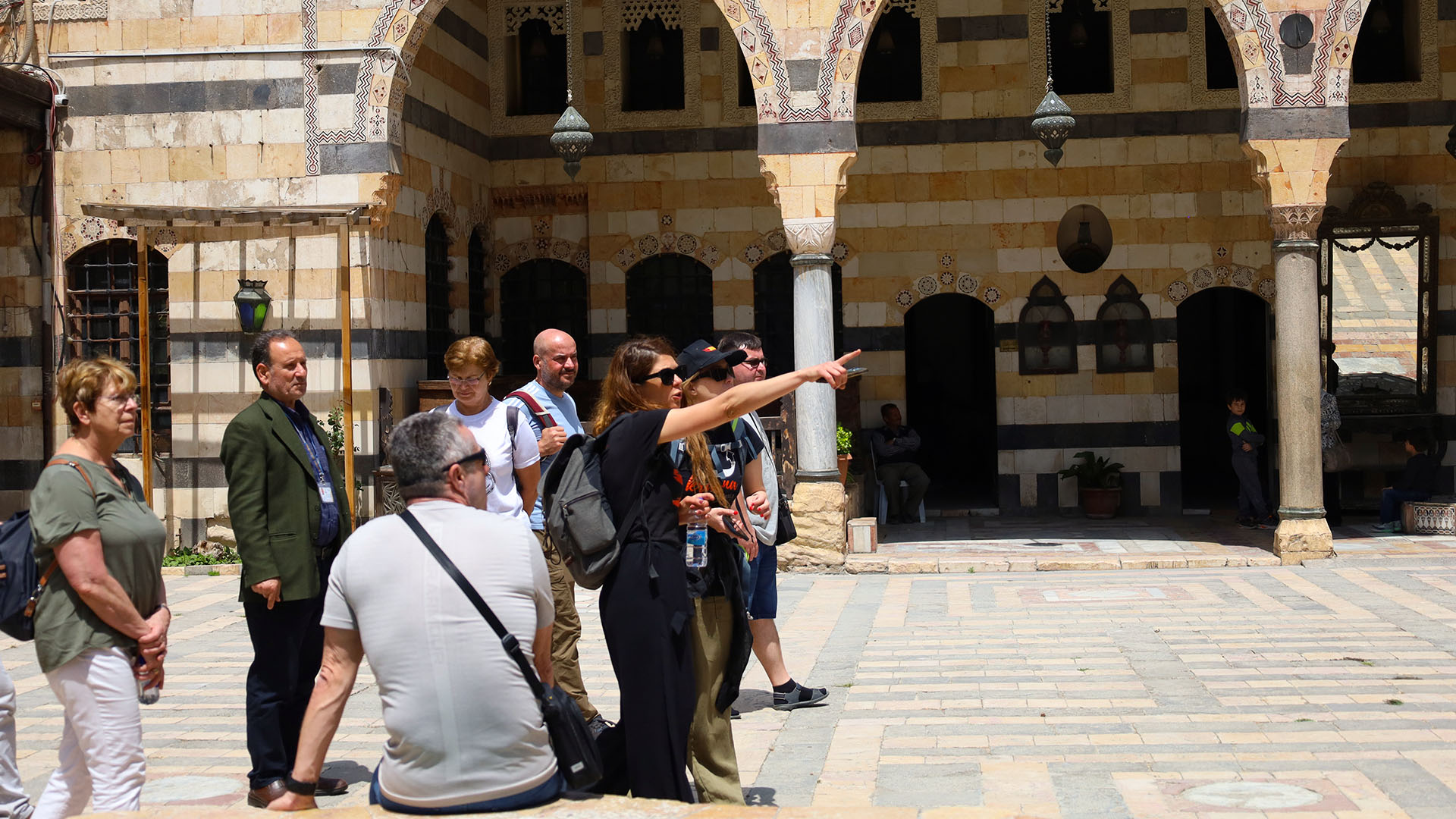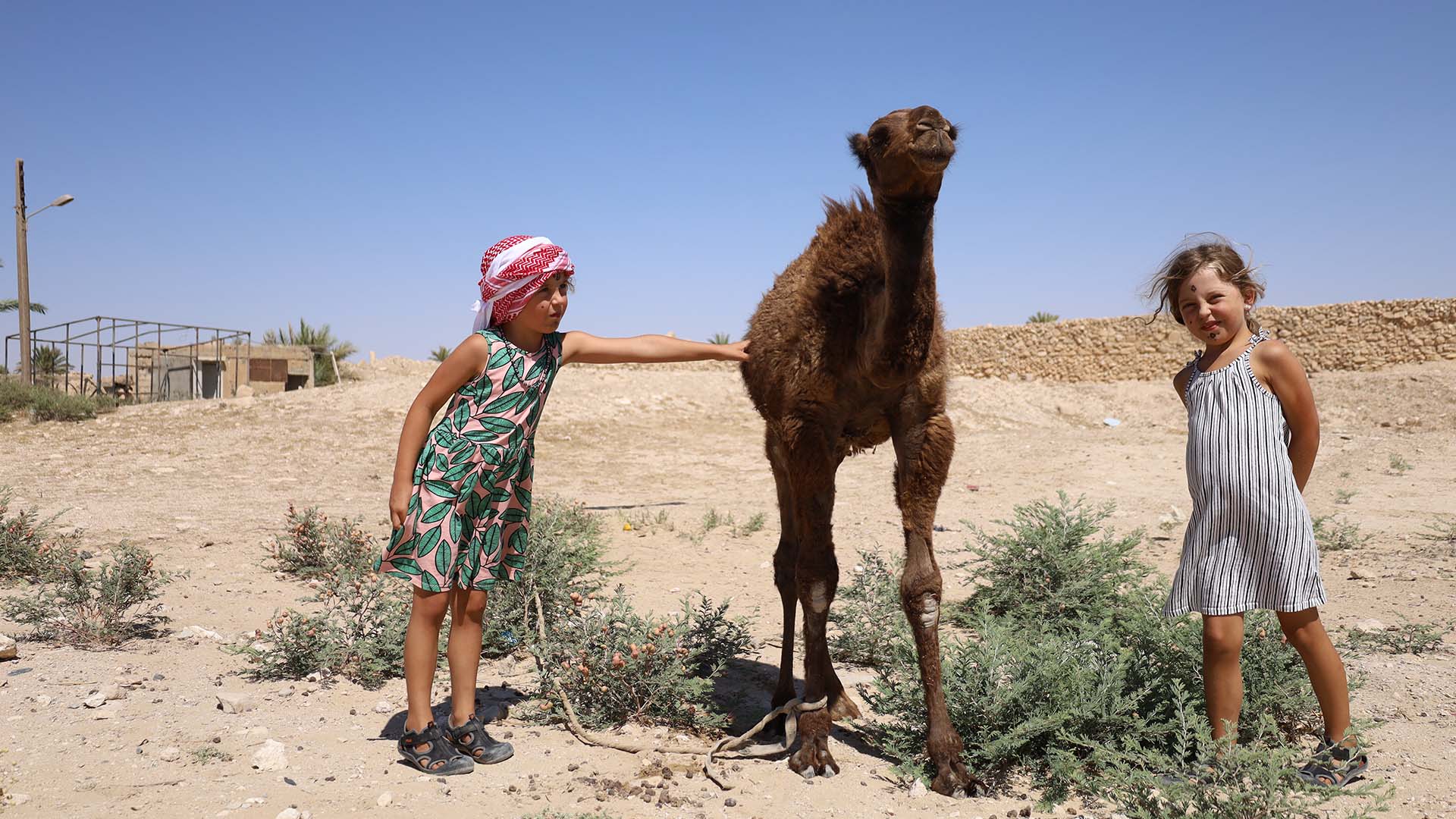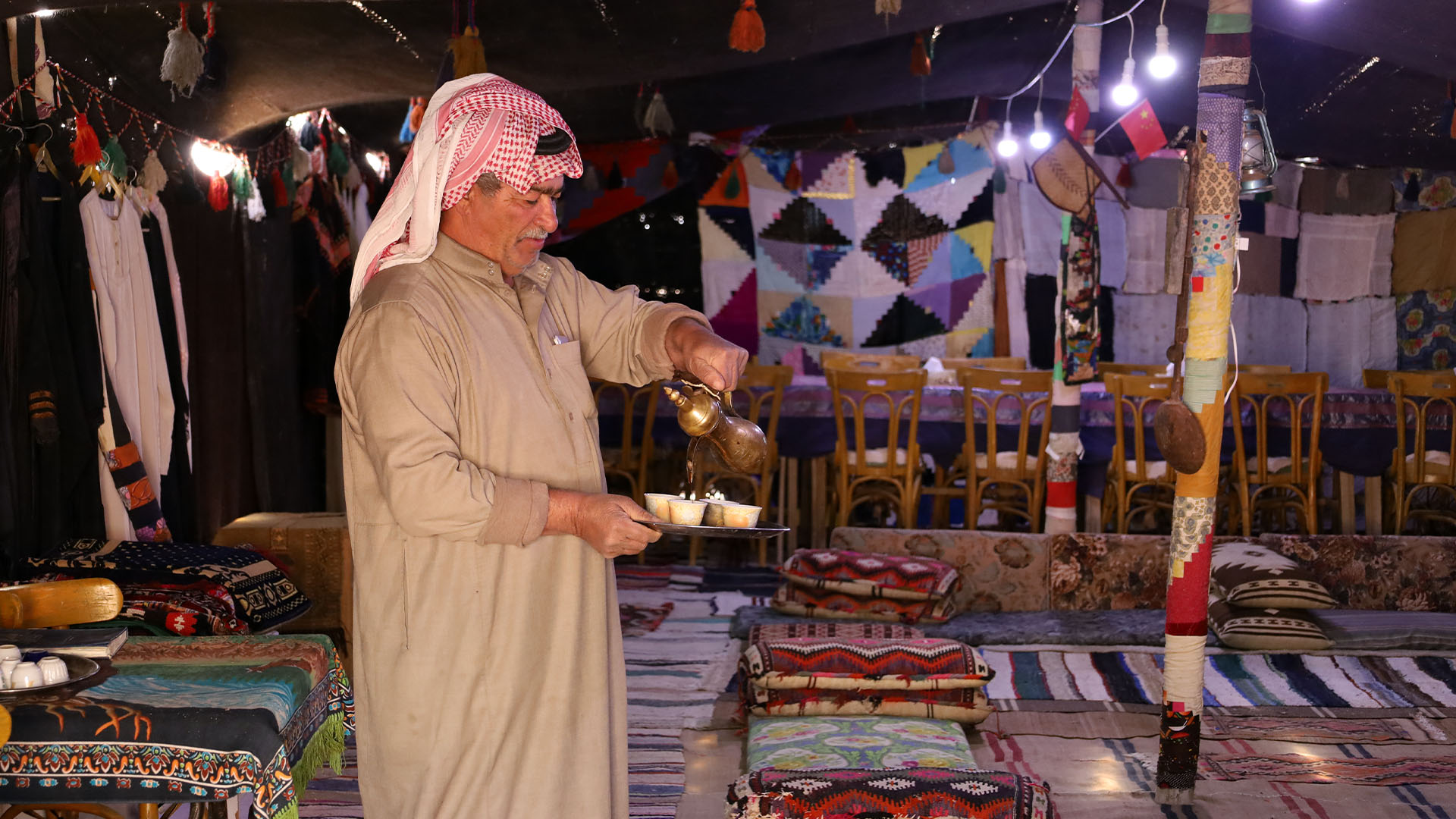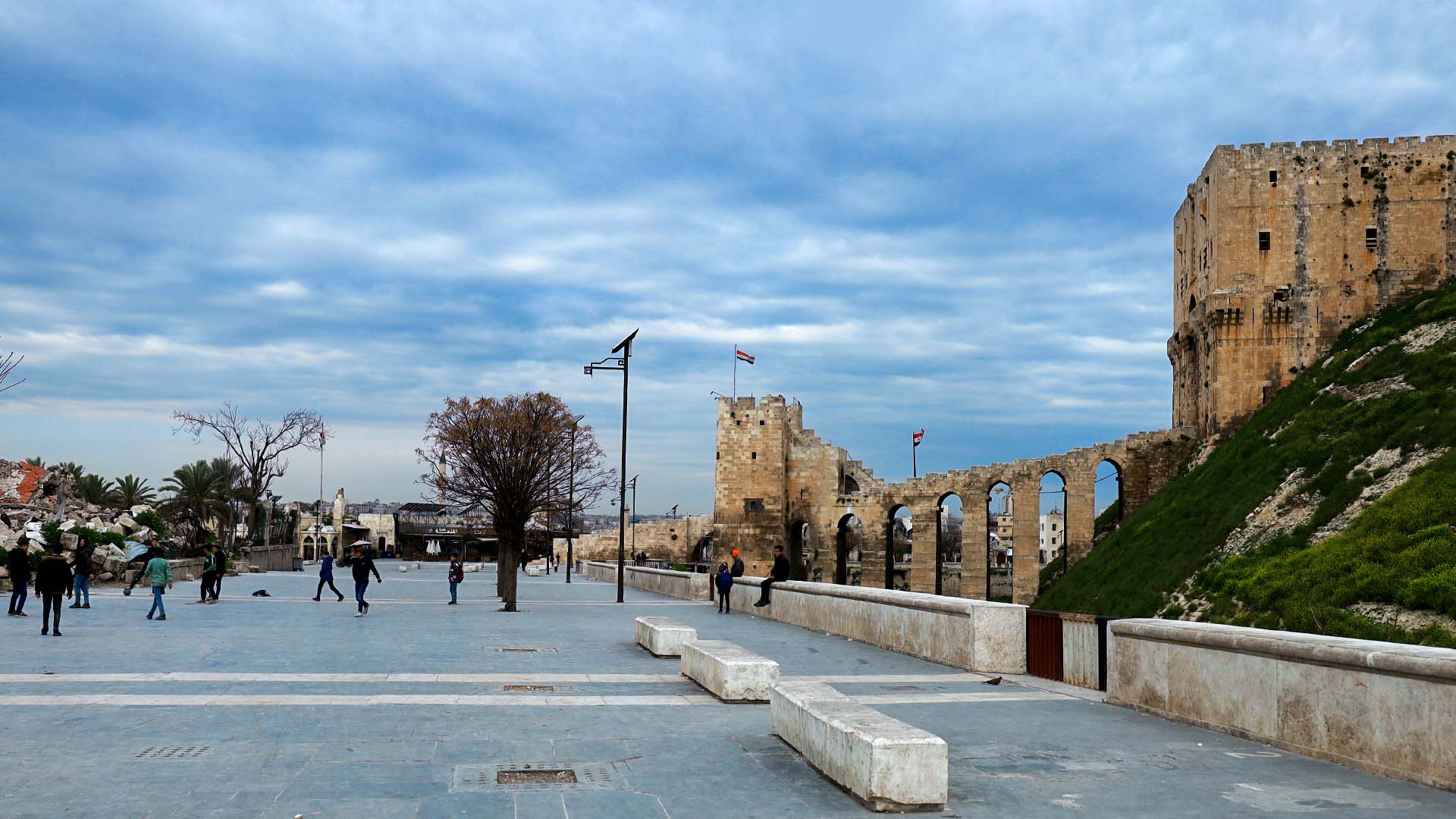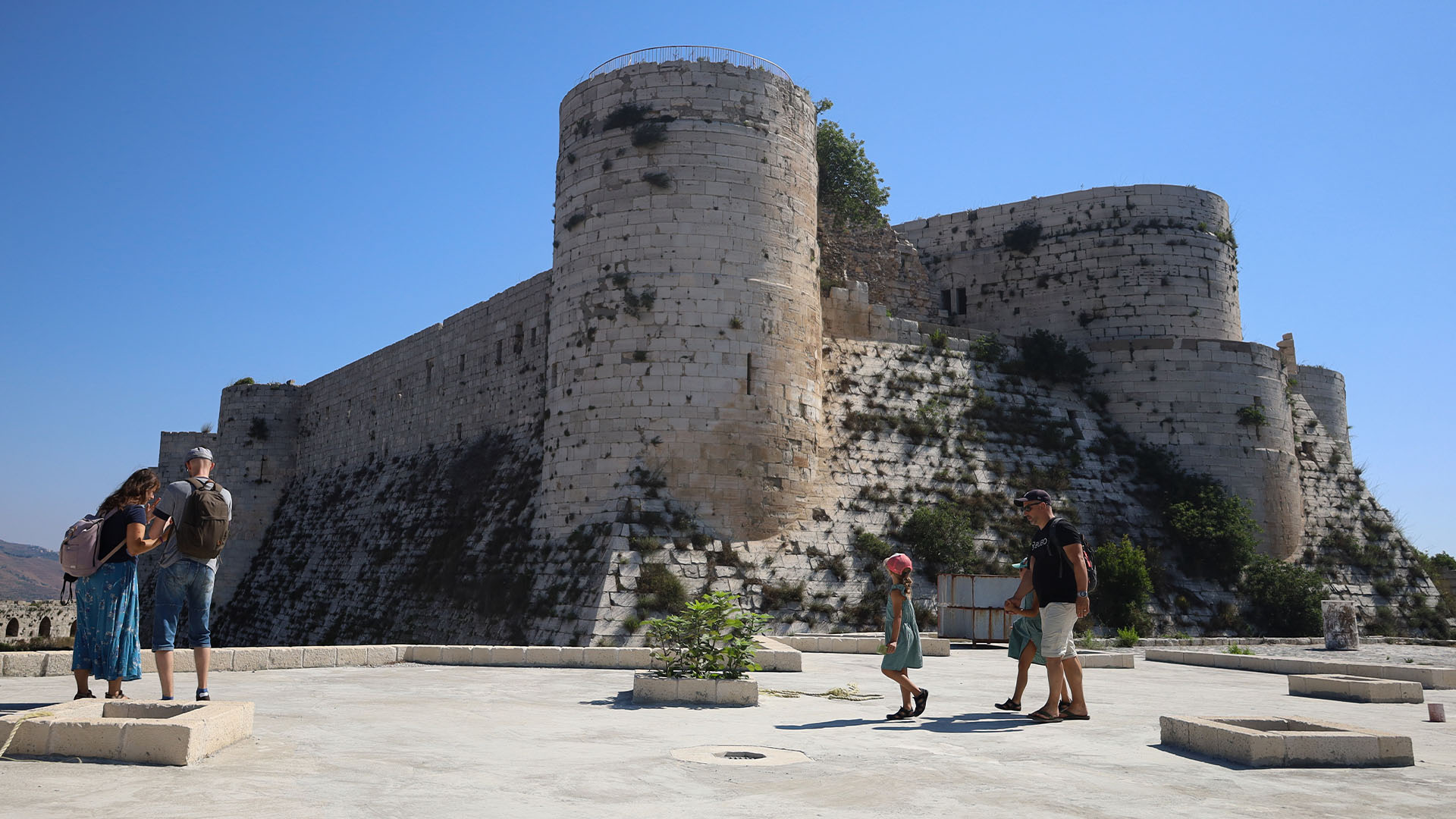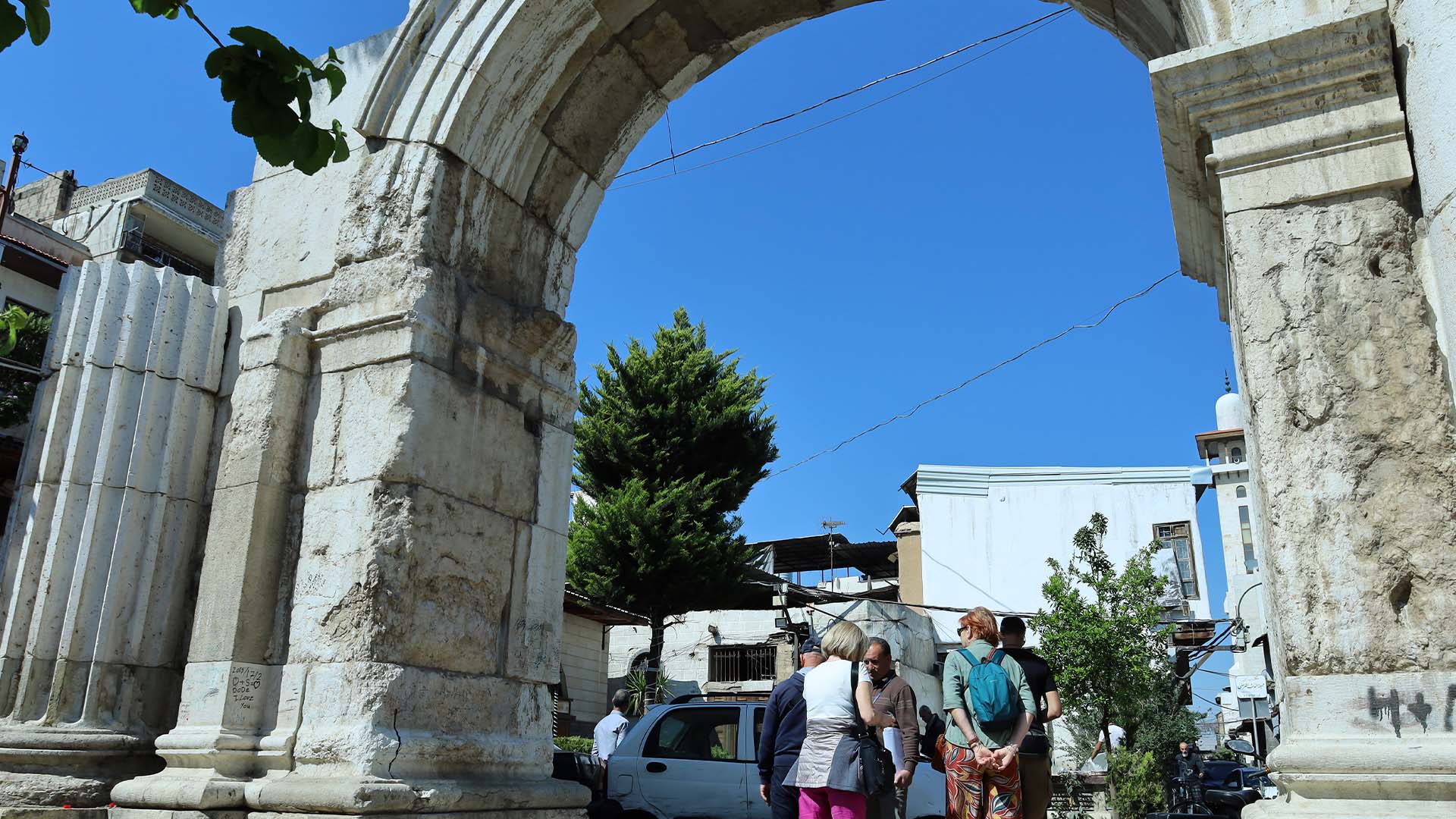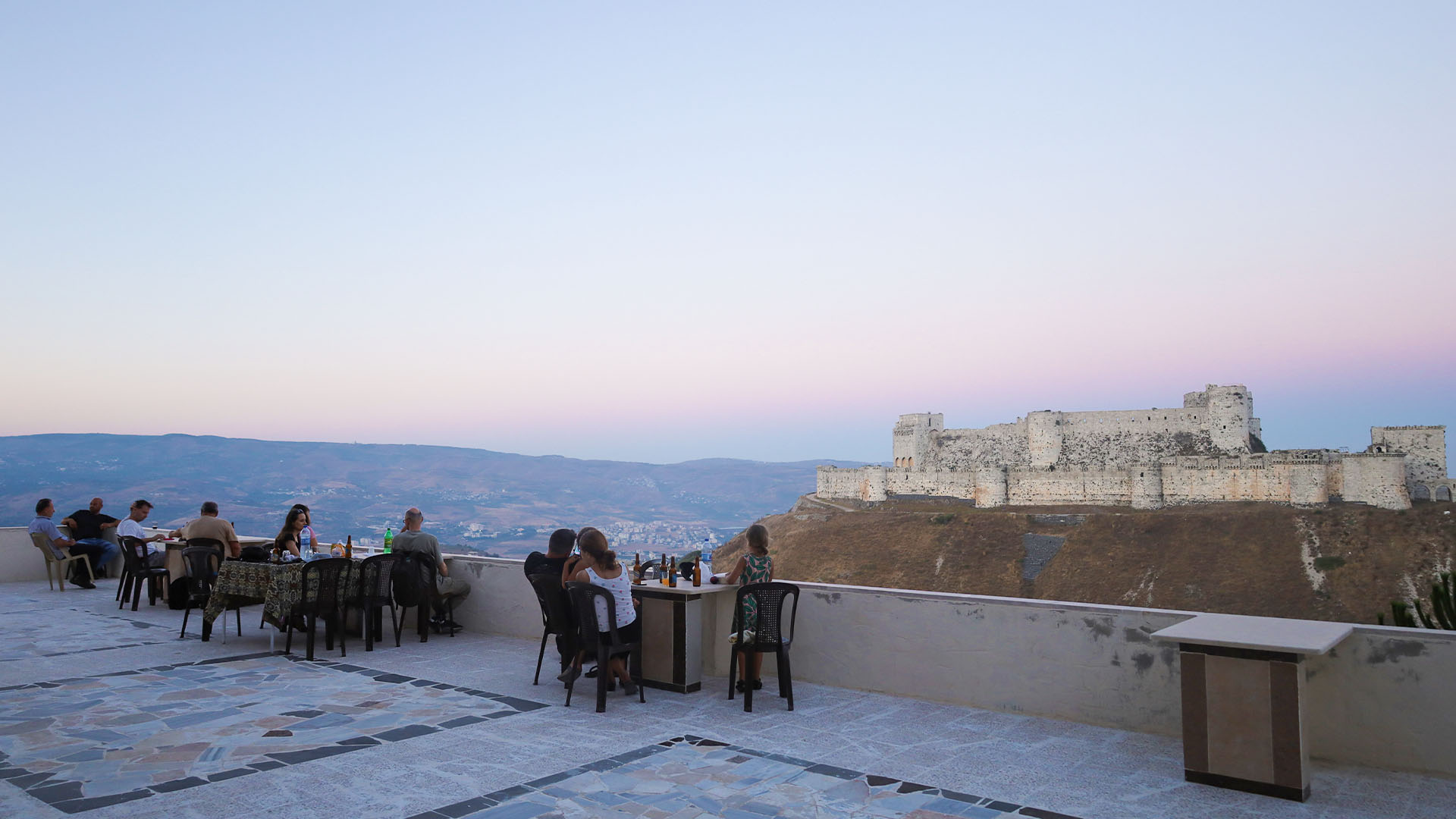Travel to Syria where a world of wonders await you. Syria has historically been a country with a rich cultural heritage and a popular tourist destination. However, due to war in recent years, the tourism industry in Syria has been significantly impacted. However, there have been tireless efforts to rebuild and revive the tourism sector in Syria.
As the war came to end, tourists have started to return, and there has been a gradual resurgence of interest in visiting Syria. This has led to Syria once again finding its place on the tourist map as one of the visited destinations in the region.
Safety and Security:
Is it Safe to Visit Syria Now?
This is understandably the top concern for most potential travelers Syria. While the war has significantly came to end, some areas which are not under control of Syrian government remain unsafe. Therefore, It’s important to travel with a reputable local travel agency on organized tours.
Nawafir Travel arranges organized tours to safe and accessible areas, ensuring a smooth and enriching experience. the sites included in our itineraries are safe and secure to visit. We take the security and wellbeing of our clients very seriously and will not include any areas or sites where their security may be compromised.
Guests from all over the world have enjoyed safe tours with us, and they have toured the sites and towns safely and without any security incidents. We always follow and adhere to the instructions of the concerned local authorities and strictly follow the itinerary.
Nawafir Tours also offers comprehensive pre-departure briefings, outlining safety precautions, and prioritize transparent communication and responsible travel practices.
Do I Need a Visa to Enter Syria?
The most important question on your mind might be: Do I need a visa? The answer is yes, but the process is relatively straightforward when you choose Nawafir Travel as your local travel agency. Nawafir Travel offers comprehensive visa assistance, taking the hassle out of pre-travel logistics. Nawafir Travel will guide you through the process and ensure you have the proper documentation.
What are the Specific Visa Requirements for your Nationality?
Ready to travel to Syria? Check your visa requirements first! Processing times can take anywhere from 4 to 30 days, depending on your nationality. Plan your trip well in advance!
What are the Security Measures in Place for Tourists?
Travelling to Syria involves several security measures set by the Syrian government. Expect to obtain travel permits, encounter checkpoints, be accompanied by licensed guides, and face limitations in accessing certain areas.
Can I Travel Independently in Syria?
Currently, independent travel is not permitted in Syria. All visitors must be accompanied by a licensed guide and stick to approved itineraries.
Are there any Travel Advice in Place Imposed by the Syrian Government?
It is important to emphasize that the Syrian authorities have strict regulations regarding previous travel to Israel and self-ruled territories. If, while obtaining your Syria visa on arrival, border officials discover any indications in your passport that raise suspicions of prior visits to Israel, your entry into Syria will be unequivocally refused.
How can I Arrive to Syria?
Generally, most guests arrive at Beirut Int’l Airport and then travel overland to Syria. Beirut Int’l Airport serves as the easiest and most popular entry point, cost-wise and logistics-wise. Another option is to travel through Amman Int’l Airport, Jordan to reach Syria.
Are there any Specific No-visit Areas in Syria?
While government-controlled regions are generally considered safe, some areas like Idlib and parts of eastern Syria remain conflict zones. It’s crucial to stay updated on the latest travel advisories and consult with your Nawafir Travel about specific safety protocols in your chosen destinations.
What about Medical Facilities in Syria?
While medical care is accessible in major Syrian towns and cities (through public and private hospitals/clinics), consider bringing medication you might need. Private facilities often offer higher standards. Remember, adequate travel insurance is crucial.
Cultural Sensitivity:
What is the Recommended Dress Code?
Syrians generally dress in a conservative manner, although many also wear Western-style clothing. It is best to observe and follow the dressing cues of others around you, as you would in any place. Men typically wear long pants, although shorts are becoming more popular in larger cities, along with a t-shirt or shirt. Women should dress loose-fitting, long-sleeved clothing that covers their bodies, including their shoulders, knees, and necklines. When visiting mosques, women should also cover their hair (Abayas are provided at the Omayyad Mosque in Damascus).
What are the Prevailing Social Norms?
In Syrian culture, shaking hands is generally considered a suitable form of greeting when meeting someone for the first time or in more formal settings. However, it’s important to be aware that some individuals, particularly those who hold more conservative views or adhere to certain religious practices, may prefer not to engage in physical contact. If shaking hands is not appropriate or preferred, you can offer a warm smile and a slight nod as a gesture of greeting. Placing your right hand over your heart is another respectful alternative that conveys goodwill and acknowledges the person you are greeting.
When visiting a Syrian home, it is considered thoughtful to bring a small gift as a token of appreciation. This could be something simple like sweets or a small souvenir from your home country. It is a gesture of goodwill and shows respect for the hospitality extended to you.
In addition to greetings and gift-giving, there are certain customs to keep in mind when entering a mosque or a Syrian house. It is customary and respectful to remove your shoes before entering these places. This practice helps keep the area clean and demonstrates cultural sensitivity. Furthermore, when sitting, it is important to avoid postures that expose the soles of your shoes, as this is considered impolite in Syrian culture.
What about Alcohol?
Syria is known for its relatively moderate social customs and traditions, and it is generally not considered a conservative country in terms of social practices. As such, alcohol is readily available in most hotels and restaurants in major cities throughout the country.
In cities like Damascus, Aleppo, and other urban centres, you can find a range of establishments that offer alcoholic beverages. Many hotels have their own bars and restaurants where you can enjoy a variety of drinks. Additionally, numerous restaurants, cafes, and lounges in major cities serve alcohol as part of their offerings.
Old Damascus, in particular, is renowned for its vibrant nightlife scene. It boasts a diverse array of bars, clubs, and drink stands where both locals and tourists can gather and enjoy a lively atmosphere. This area offers opportunities to socialize, unwind, and experience the local nightlife culture.
However, it’s important to note that while alcohol is available and socially accepted in many areas, it is still advisable to be respectful of the local customs and traditions. It’s always a good practice to consume alcohol responsibly and be mindful of the cultural sensitivities and norms of the places you visit.
What about Smoking?
Smoking, both cigarettes and water pipes (Shisha), is prevalent among both men and women in Syria. It is generally permitted to smoke in restaurants, cafes, and public areas.
However, it is recommended to exercise consideration and ask for permission before smoking in public areas, as a gesture of respect for those around you. While smoking is generally allowed, it’s always a good practice to check with your accommodation for any specific guidelines or restrictions regarding smoking.
It’s worth noting that smoking restrictions may be in place in government buildings and public transportation, so it is advisable to be mindful of these regulations and adhere to any designated smoking areas or restrictions that may be in effect.
Are there any Tips on Photography?
Be mindful of cultural sensitivities and individual privacy. It’s always best to seek permission before taking photographs, particularly at religious sites or when capturing images of people. Photography of military personnel or installations is strictly forbidden.
What about Visiting Syria during Ramadan?
Traveling during Ramadan, the holy month of fasting for Muslims around the world, can be a unique and enriching experience. While it requires some cultural sensitivity and adjustments to your usual travel routine, it can also offer a glimpse into a beautiful and meaningful time for Muslim communities.
Practicalities:
How is Wi-Fi and Mobile Communications?
All hotels provide free Wi-Fi, although the quality of service may vary, and the standards may not be as high. Additionally, your local guide can assist you in purchasing a pre-paid SIM card at the border crossing or upon arrival, allowing you to access the internet while on the move.
Syria has extensive mobile coverage, although occasional weak signals may occur due to prolonged power outages. Mobile phone coverage can be limited in some areas, so consider purchasing a local SIM card for better connectivity.
How is Electricity?
Syria faces a severe shortage of electricity supply, and rationing is in place throughout the country. Consequently, the supply of electricity can be inconsistent, and unexpected power outages may occur, especially during hot summers and cold winters. The electrical voltage in Syria is 220 V, and the frequency is 50 Hz. Electrical outlets typically have two rounded prongs.
What Currency should I Bring?
The official currency in Syria is the Syrian pound (S.P). The primary currency used for exchanging into Syrian pounds is the US dollar. Euro is less commonly accepted. So, it is advisable to carry extra US dollars in cash, as ATMs are not operational due to restrictions. When changing money at a government bank at the border and within the cities, please seek assistance from your local guide.
How Much should I Budget?
While Syria is not considered expensive by global standards, the country has experienced unexpected inflation and devaluation of the Syrian pound, leading to increased prices. While you have the freedom to set your own spending limits, taking into account that only Syrian pounds are accepted for day-to-day transactions.
Logistics and Planning:
How do I Arrange my Trip to Syria?
Travel to Syria is done through organized tours with an experienced local travel agent. The local travel agent will expertly handle the often-complex logistics, securing necessary visa approval code and travel permits, while arranging reliable transportation, comfortable accommodation and professional guidance services.
What is the Best Time to Visit Syria?
Syria enjoys a moderate Mediterranean climate. The ideal times to travel are during spring (March to May) and early autumn (September to November). During these periods, the weather is sunny, warm, and clear, with daytime temperatures reaching around 25°C. Winter (December to February) can be chilly and rainy, with occasional snowfall, while summer (June to August) is hot, dry and clear, with sporadic temperatures exceeding 40°C.
What about Food and Water?
Syrian cuisine is delicious, but be cautious with street food and unfiltered water. Stick to reputable restaurants and bottled water.
Ethical Considerations:
Is it Ethical to Visit Syria?
Some people argue that tourism supports the Syrian government, while others believe it can help rebuild the economy and promote cultural understanding. Ultimately, the decision of whether or not to travel to Syria is a personal one.
How can I be a Responsible Tourist in Syria?
Be respectful of local customs and traditions, dress modestly, and avoid taking photos of sensitive areas or people. Support local businesses and communities, and learn about the country’s rich history and current challenges.
Experiences and Activities:
What are the Must-Visit Sites in Syria?
Syria is home to incredible ancient historical sites, UNESCO World Heritage Sites, religious villages, biblical sites, lively old markets. Its rich cultural and historical heritage is truly captivating. Beyond the historical sites, Syria offers stunning natural landscapes,
What about Religious Diversity?
Explore the rich tapestry of religious sites, from the stunning Umayyad Mosque and the Sayyidah Zaynab shrine in Damascus to ancient Christian churches in Maalula and Sednaya and Sufi shrines.
What is the Food like in Syria?
Syrian cuisine is a delicious blend of Mediterranean and Middle Eastern flavors. While each city in Syria boasts its own distinct regional dishes, there are several must-try culinary delights, including Yabraq, Kibbeh, Mahshi, Molokhia, Shish Barak, Koussa Blaban, Baba ghanoush, Kebab Halabi, Muhammara, Shawarma, Falafel, etc. Syrian sweets and desserts are equally renowned for their exquisite flavors. When in Syria, be sure to indulge in delightful treats such as: Baklava, Basbousa, Kunafa, Barazek, etc.

